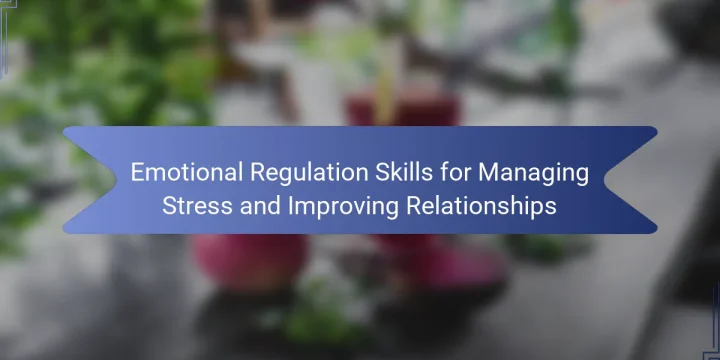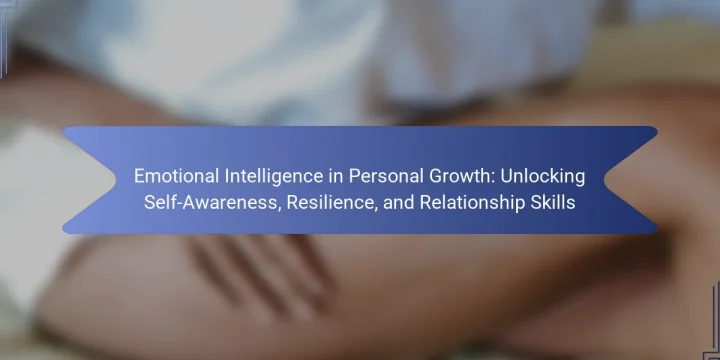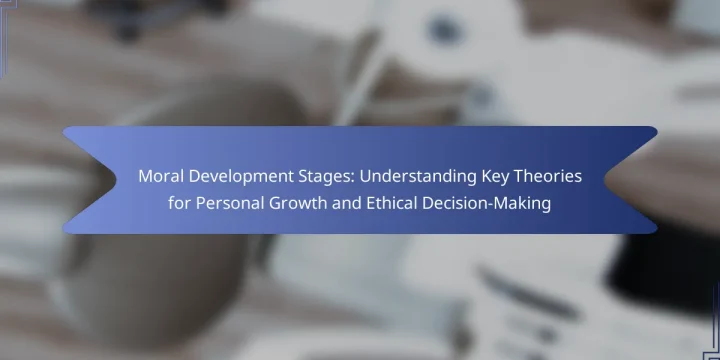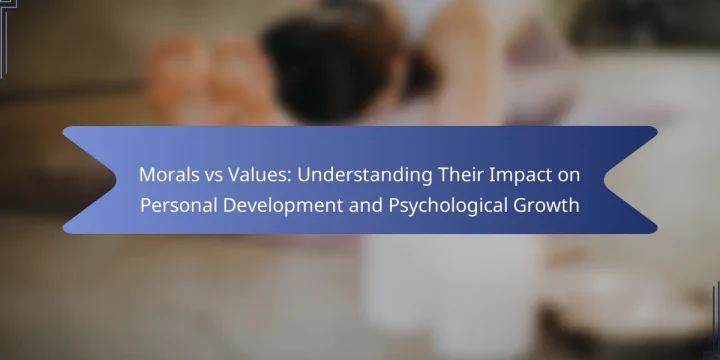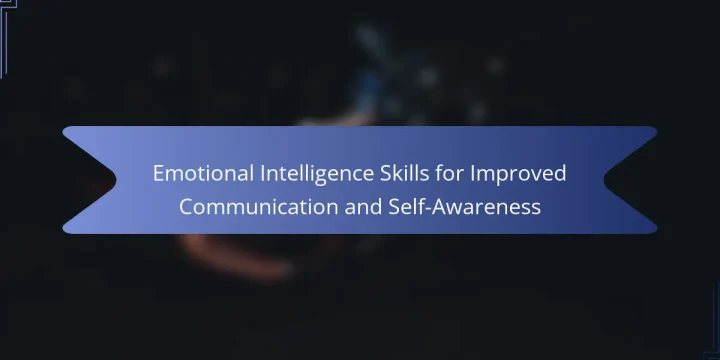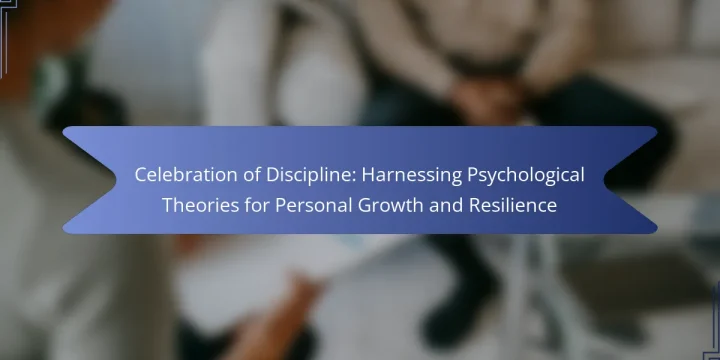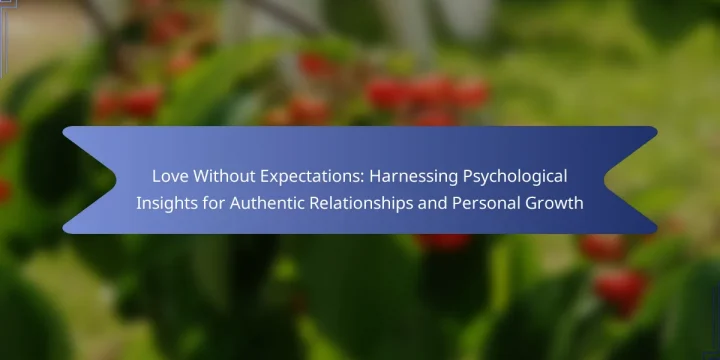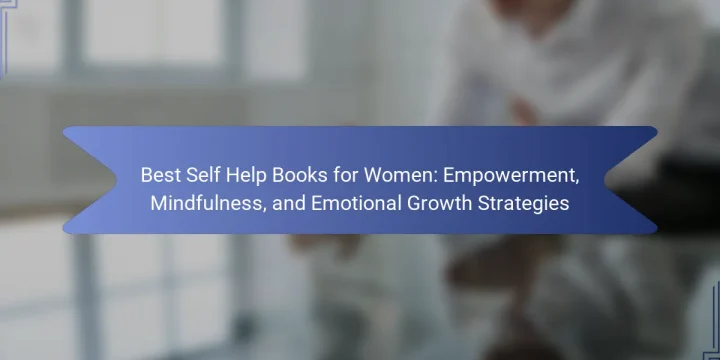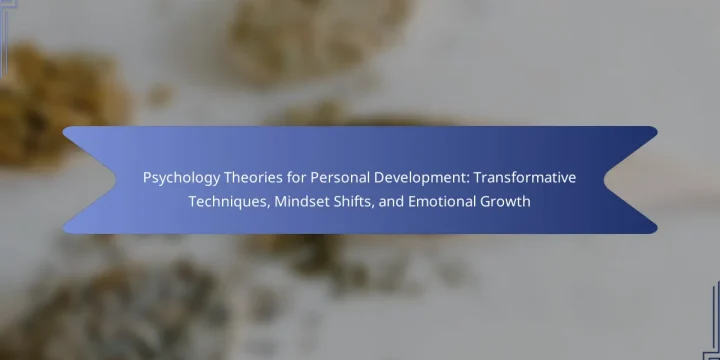
Personal development is essential for emotional growth and self-awareness. Explore psychology theories like cognitive-behavioral, humanistic, and psychodynamic approaches. Discover transformative techniques, essential mindset shifts, and common mistakes that hinder progress. Learn how to apply these insights in daily life for lasting change. What are the foundational psychology theories for personal development? Psychology theories for personal development include cognitive-behavioral theory, humanistic psychology, and psychodynamic theory. These frameworks promote transformative techniques, mindset shifts, and emotional growth. Cognitive-behavioral theory emphasizes changing negative thought patterns to improve behavior. Humanistic psychology focuses on self-actualization and personal potential. Psychodynamic theory explores unconscious influences on behavior, fostering deeper self-awareness. Each theory offers unique insights and tools for personal growth, enabling individuals to navigate their emotional landscapes effectively. How do cognitive-behavioral theories contribute to personal growth? Cognitive-behavioral theories…
